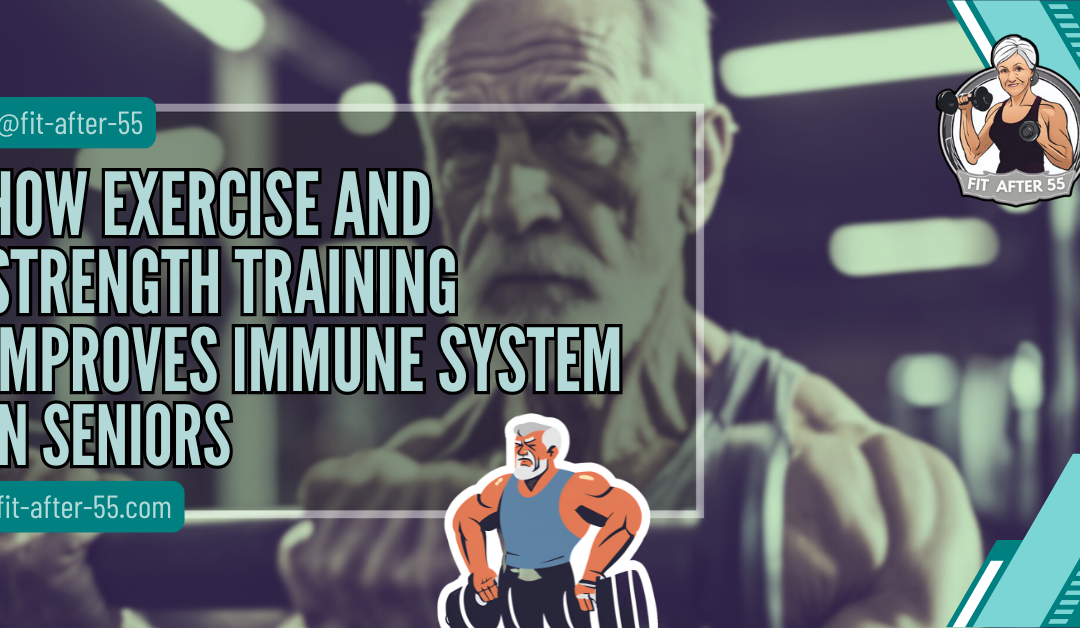How Exercise and Strength Training Improves Immune System in Seniors: Boosting Health in Your Golden Years
As we age, our immune system weakens, making us more prone to illness. But there’s good news for seniors – exercise and strength training can help boost your body’s defenses. Regular physical activity strengthens the immune system and lowers the risk of age-related diseases.
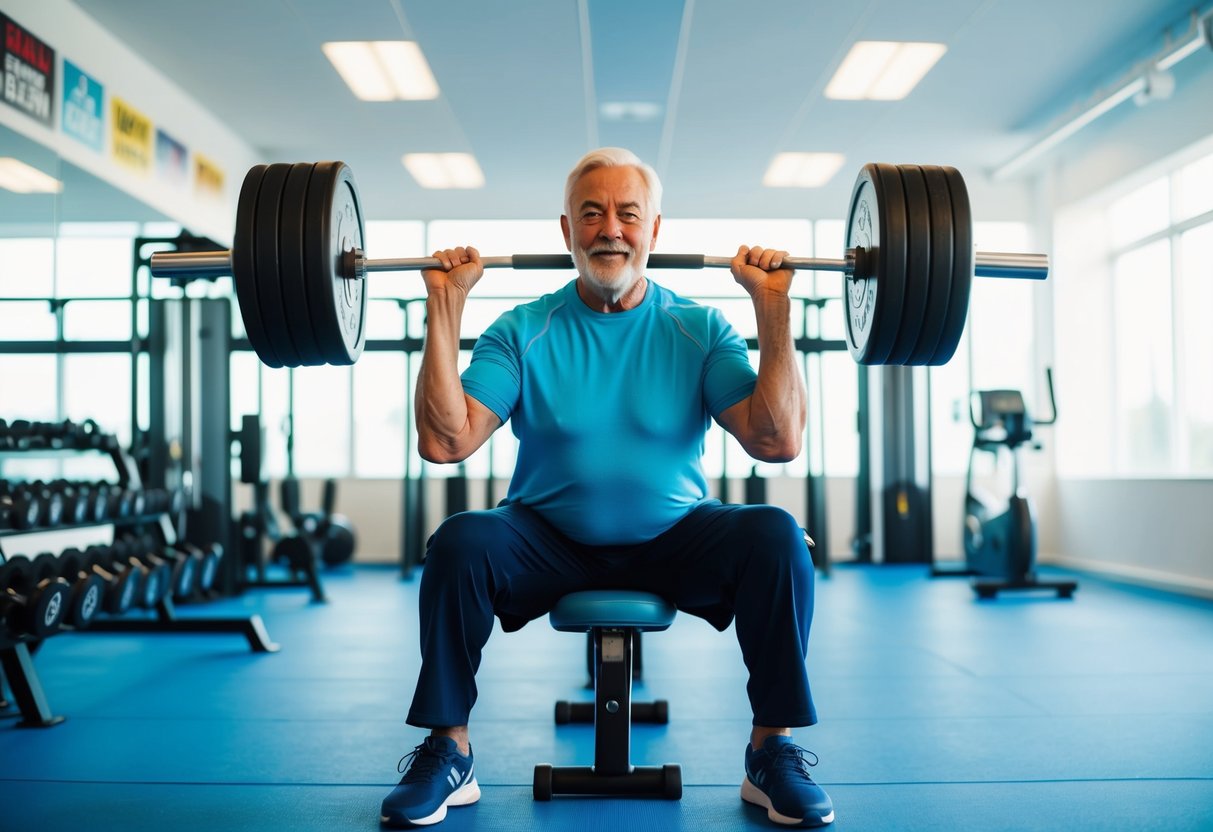
Exercise helps circulate immune cells in your body, improving their ability to fight off infections. It also reduces inflammation, which is linked to many health problems in older adults. Strength training is especially helpful, as it builds muscle and bone density while supporting immune function.
Starting an exercise routine may seem daunting, but even small amounts of activity can make a big difference. Walking, swimming, or gentle yoga are great options for beginners. As you get stronger, you can add more challenging exercises to your routine.
Key Takeaways
- Exercise boosts immune function and reduces inflammation in seniors
- Both cardio and strength training offer unique benefits for your health
- Start small and gradually increase activity for the best results
Understanding the Immune System
Your immune system is your body’s defense against harmful invaders. It’s a complex network of cells, tissues, and organs that work together to keep you healthy.
Components of the Immune System
The immune system has two main parts: innate and adaptive. Your innate immune system is your first line of defense. It includes physical barriers like skin and mucous membranes. It also has cells that quickly attack any foreign substances in your body.
The adaptive immune system is more specialized. It remembers specific threats and can fight them off more effectively if they return. This system includes T-cells and B-cells, which are types of white blood cells.
Other key components include:
- Antibodies
- Lymph nodes
- Bone marrow
- Spleen
These parts work together to detect and fight off harmful invaders like bacteria, viruses, and other pathogens.
Aging and Immune Function
As you get older, your immune system changes. This process is called immunosenescence. It can make you more vulnerable to infections and diseases.
Some key changes include:
- Fewer new T-cells produced
- Existing T-cells become less responsive
- B-cells produce less effective antibodies
Your innate immune system also weakens with age. This means your body may not detect threats as quickly as it used to.
These changes can increase your risk of:
- Infections
- Autoimmune disorders
- Certain cancers
But don’t worry! There are ways to support your immune system as you age. Exercise and strength training can help keep your immune system strong and healthy.
The Benefits of Exercise for Seniors
Exercise offers many advantages for older adults. It can boost your physical health and improve your mental well-being. Let’s explore these benefits in more detail.
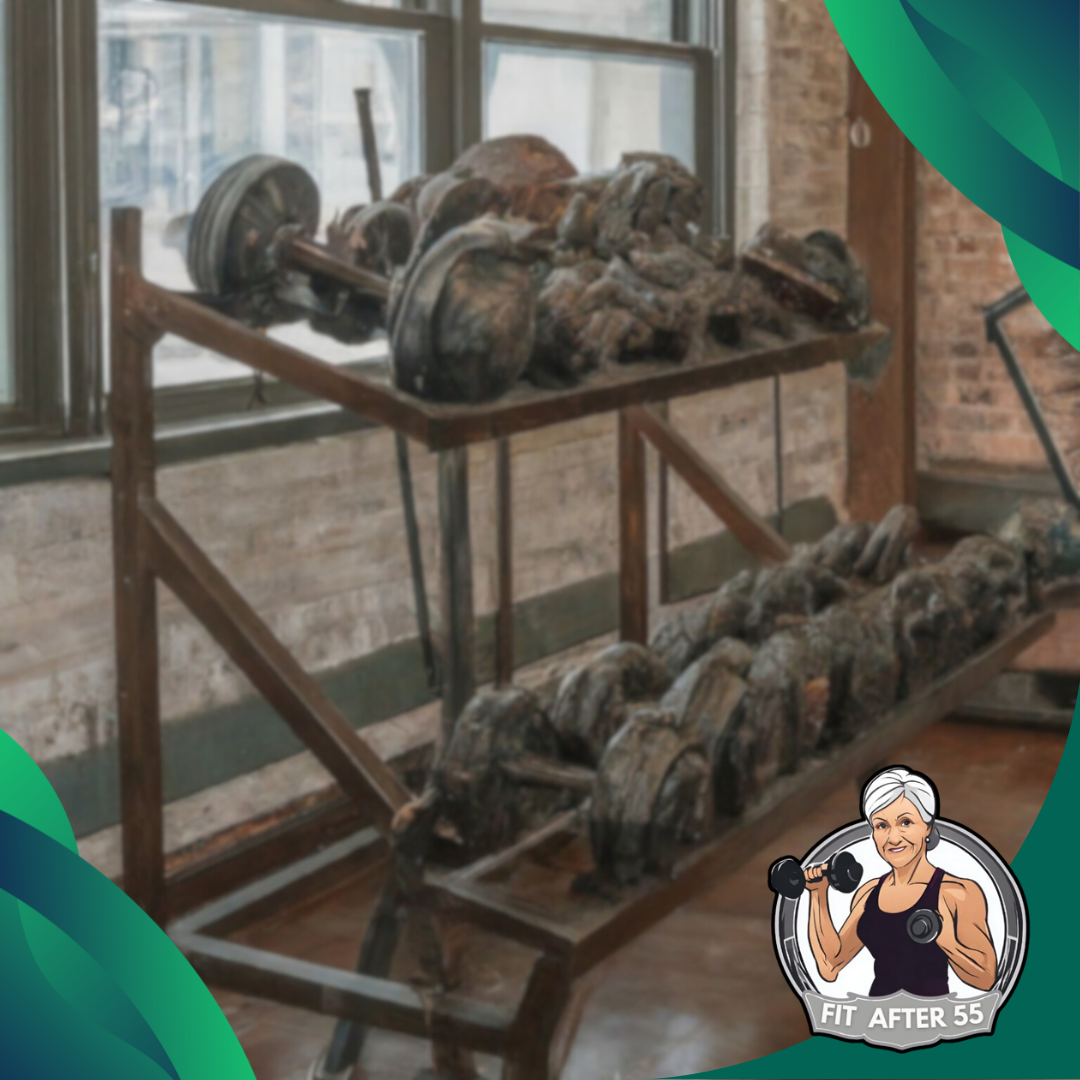
Physical Health Advantages
Regular exercise can prevent bone loss and relieve arthritis pain. It helps you maintain a healthy weight and reduces the risk of chronic diseases.
Exercise also improves your balance and coordination. This lowers your chances of falling, a common concern for many seniors.
Your immune system gets stronger with physical activity. This means you’re better equipped to fight off illnesses and infections.
Regular workouts can improve your sleep quality too. You’ll find it easier to fall asleep and stay asleep throughout the night.
Mental Health Improvements
Exercise is great for your brain health. It can help keep your mind sharp and may even reduce the risk of cognitive decline.
Physical activity releases endorphins, which are natural mood boosters. This can help you feel happier and more positive overall.
Regular exercise can also lower your stress levels and reduce anxiety. You might find it easier to relax and unwind after a good workout.
Staying active can increase your self-esteem and confidence. You’ll feel proud of your achievements and more capable in your daily life.
Exercise can also be a social activity. Joining group classes or walking with friends can help you stay connected and reduce feelings of loneliness.
How Exercise Enhances Immunity
Exercise has powerful effects on your immune system. It helps your body fight off illnesses and stay healthy. Regular physical activity can boost your defenses in several key ways.

Boosting Immune Surveillance
Exercise improves your immune function by increasing the activity of immune cells. When you work out, your body releases more white blood cells into your bloodstream. These cells patrol your body and look for threats.
Your immune system becomes more alert and ready to spot invaders. This heightened state can last for several hours after exercise. Over time, regular workouts lead to better overall immune surveillance.
Exercise also speeds up the circulation of immune cells. This helps them find and fight off germs faster.
Reducing Inflammation
Chronic inflammation can weaken your immune system. Exercise helps lower inflammation in your body. This effect is especially helpful for older adults.
When you exercise, your muscles release substances that fight inflammation. These substances travel through your bloodstream and reduce inflammation throughout your body.
Regular physical activity also helps control your weight. This is important because excess body fat can cause inflammation.
By reducing inflammation, exercise helps your immune system work better. It allows your body to focus on fighting off real threats instead of dealing with unnecessary inflammation.
Improving Vaccine Responses
Exercise can make vaccines work better in your body. This is great news for seniors who rely on vaccines for protection against diseases.
When you exercise before getting a vaccine, your body produces more antibodies. Antibodies are proteins that fight off specific germs. More antibodies mean better protection from the disease.
The effect works for many types of vaccines. It’s been shown to improve responses to flu shots and COVID-19 vaccines.
You don’t need intense workouts to get this benefit. Even moderate exercise like brisk walking can help. Try to exercise regularly in the weeks before and after your vaccine appointments.
Types of Exercise for Immune Support
Exercise can help seniors boost their immune systems. Different types of activities offer unique benefits for your body’s defenses. Let’s look at some key exercises you can try.
Aerobic Activities
Aerobic exercises get your heart pumping and help your immune system. You can try:
- Walking: A 30-minute walk every day is great for your health.
- Swimming: This low-impact activity is easy on your joints.
- Cycling: Ride a bike outdoors or use a stationary bike at home.
- Dancing: It’s fun and gets your body moving.
These activities help stimulate your cellular immunity. They increase blood flow and reduce inflammation in your body.
Aim for about 150 minutes of moderate aerobic exercise each week. You can break this up into smaller sessions if needed.
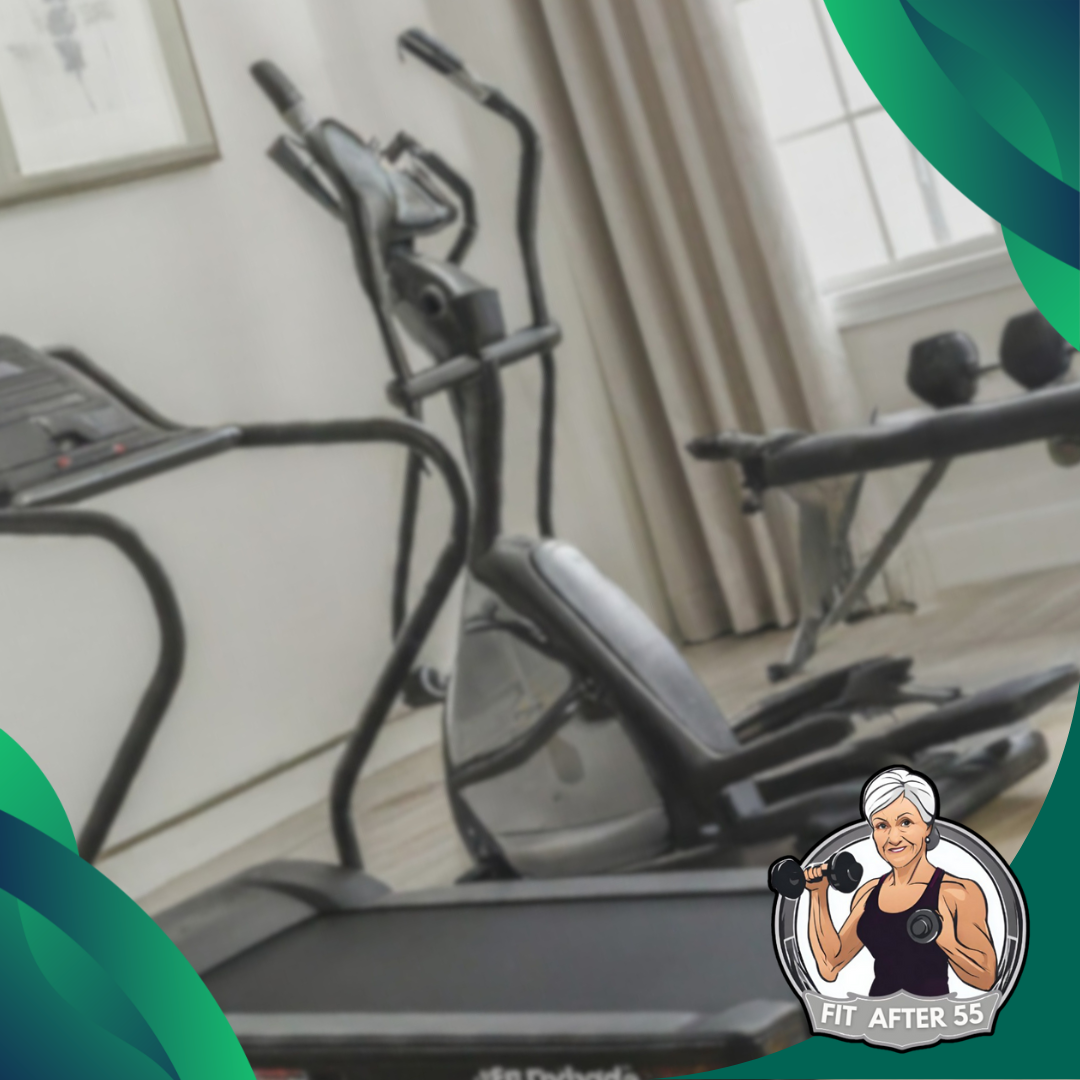
Strength Training Exercises
Building muscle is important for your immune health. You can use:
- Resistance bands: These are easy to use at home.
- Bodyweight exercises: Try push-ups, squats, or lunges.
- Light weights: Start with small dumbbells and increase as you get stronger.
Strength training supports your immune function in many ways. It helps your body fight off infections and respond better to vaccines.
Try to do strength exercises 2-3 times a week. Focus on all major muscle groups. Remember to rest between sessions to let your muscles recover.
Balance and Flexibility Workouts
These exercises help prevent falls and keep you limber. Good options include:
- Yoga: It improves flexibility and reduces stress.
- Tai Chi: This gentle exercise enhances balance and relaxation.
- Stretching: Daily stretches keep your muscles and joints flexible.
These activities support optimal immune function by reducing stress and inflammation. They also improve your overall well-being.
Try to include balance and flexibility exercises in your routine 2-3 times a week. You can do them on their own or as part of your cool-down after other workouts.
Strength Training and Its Unique Benefits
Strength training offers special advantages for seniors’ immune health. It helps build muscle and teaches your body new ways to stay strong.
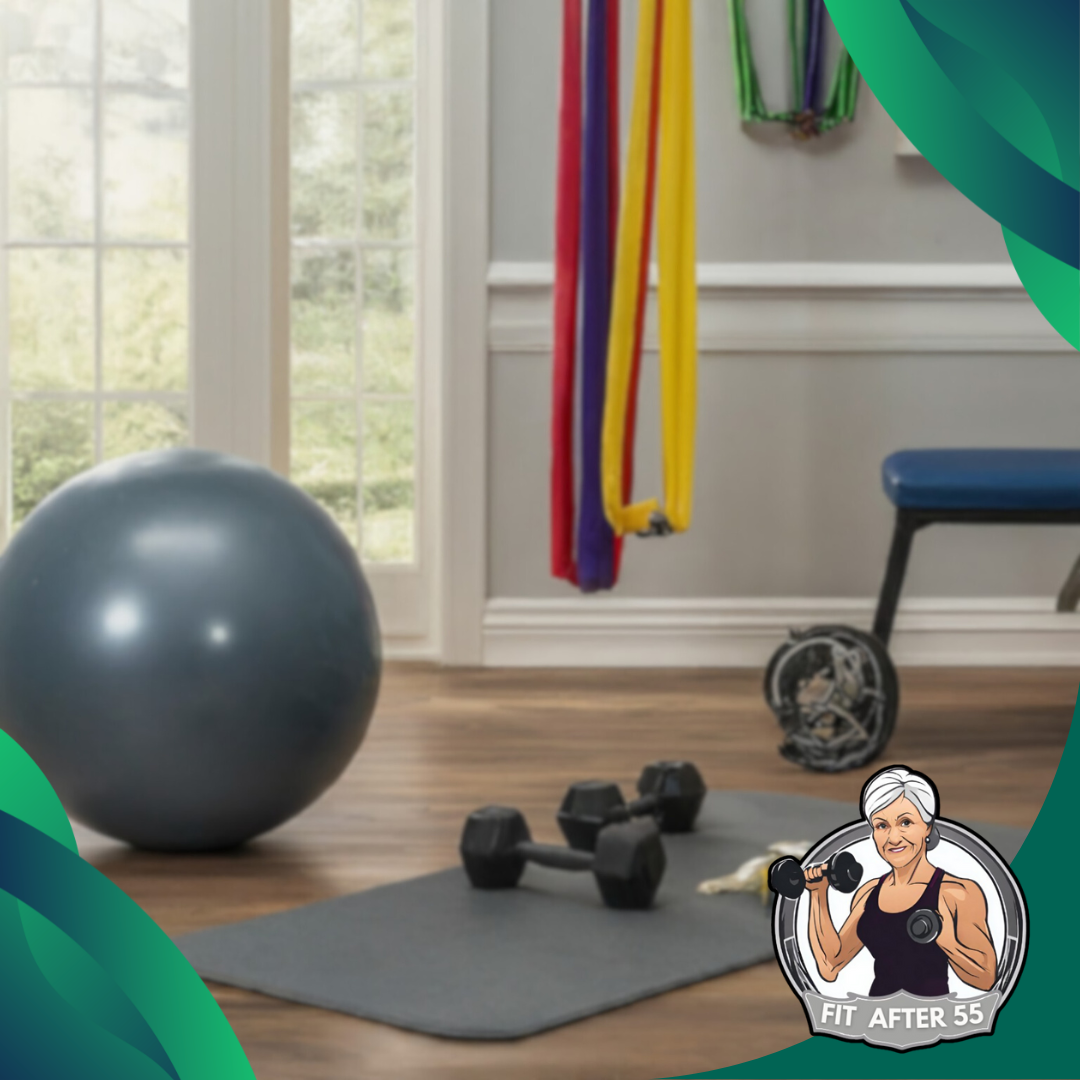
Muscle Mass and Immune Regulation
As you age, you lose muscle mass. This can weaken your immune system. Strength training helps you keep and build muscle. More muscle means a stronger immune system.
Your muscles make special proteins. These proteins help your immune cells work better. When you lift weights, your muscles release good chemicals. These chemicals lower swelling in your body.
Bigger muscles also mean more places for immune cells to live. This lets your body keep more fighter cells ready. With more muscle, you can fight off sickness easier.
Strength Training Techniques
You can do many types of strength training. Using weights is one way. You can also use exercise bands or your own body weight.
Start with light weights. Do 8-12 lifts of each exercise. Try to do this 2-3 times a week. As you get stronger, slowly add more weight.
Some good exercises for seniors:
- Chair squats
- Wall push-ups
- Arm curls with light dumbbells
- Leg lifts while sitting
Always warm up before you start. This helps avoid injury. Drink water while you exercise. Stop if you feel pain.
Strength training helps your whole body, not just your muscles. It makes your bones stronger. It also helps your heart and lungs work better.
Practical Tips for Safe Exercise
Staying active is key for seniors, but safety comes first. These tips will help you exercise smartly and protect your health.
Creating a Balanced Routine
Mix up your workouts to get the most benefits. Try to include cardio, strength training, and flexibility exercises.
Cardio activities like brisk walking or swimming are great for your heart. Aim for 30 minutes on most days.
For strength, use light weights or resistance bands 2-3 times a week. This helps keep your muscles strong.
Don’t forget stretching! It keeps you flexible and helps prevent injuries. Yoga or tai chi can be good options.
Start slow and build up over time. Listen to your body and don’t push too hard.
Consulting with Health Professionals
Talk to your doctor before starting a new exercise plan. They know your health history best.
Your doctor can tell you which activities are safe for you. They might suggest changes based on any health issues you have.
A physical therapist can teach you the right way to do exercises. This helps you avoid getting hurt.
If you have a chronic condition, ask about special precautions. Some exercises might need to be adapted for your needs.
Regular check-ups are important. They help make sure your exercise plan is still working well for you.
Incorporating Rest and Recovery
Rest days are just as important as workout days. They give your body time to heal and get stronger.
Take at least one or two rest days each week. On these days, you can do light activities like gentle stretching.
Pay attention to how you feel. If you’re very sore or tired, take an extra rest day.
Good sleep is crucial for recovery. Aim for 7-9 hours each night to help your body repair itself.
Stay hydrated and eat well to support your exercise efforts. This helps your immune system work better.
If you feel pain during exercise, stop and rest. Sharp or lasting pain isn’t normal and might mean you’re injured.
Challenges and Considerations
Staying active as a senior brings unique hurdles. You’ll need to be mindful of your body’s limits and find ways to exercise safely. Let’s explore some key issues to keep in mind.
Managing Chronic Conditions
Many seniors deal with health issues that can make exercise tricky. Arthritis might make some movements painful. Heart problems could limit how hard you can push yourself.
It’s crucial to talk to your doctor before starting any new workout plan. They can help you understand what’s safe for your body. You might need to adjust exercises to fit your needs.
Don’t get discouraged if you can’t do everything right away. Start slow and build up over time. Listen to your body and stop if something hurts.
Consider working with a trainer who knows about senior fitness. They can show you safe ways to exercise with your health issues.
Accessibility and Inclusivity in Exercise
Finding the right place to work out can be tough as you get older. Some gyms might not have equipment that works well for seniors.
Look for senior-friendly fitness centers in your area. These often have machines built for older bodies. They may also offer classes just for seniors.
If getting to a gym is hard, try home workouts. You can use light weights or resistance bands. Chair exercises are great if you have balance issues.
Don’t forget about group activities. Water aerobics or gentle yoga classes can be fun and safe. These also help you meet other active seniors.
Ask your local community center about senior exercise programs. They might offer free or low-cost options.
Building a Supportive Community
A supportive community can boost your motivation and make exercise more enjoyable. Social connections and group activities help seniors stay active and committed to their fitness goals.
Encouraging Social Engagement
You can find exercise buddies to keep you accountable. Look for neighbors or friends interested in walking or working out together. Join local clubs or community centers that offer activities for seniors. These places often have group fitness classes or organized sports.
Try to schedule regular meetups with your exercise partners. This creates a routine and helps you stick to your fitness plan. You might also consider volunteering at community events or parks. This can provide light physical activity while connecting you with others.
Online forums and social media groups for senior fitness can be great resources too. You can share tips, celebrate achievements, and find motivation from others on similar journeys.
Senior Exercise Programs and Groups
Many gyms and community centers offer special programs for older adults. These classes are tailored to your needs and fitness levels. Look for options like:
- Water aerobics
- Chair yoga
- Tai chi
- Low-impact dance classes
Senior-focused exercise groups often move at a comfortable pace. They also provide a chance to meet people with similar interests and goals. You might find walking groups in local parks or malls. These are great for gentle exercise and socializing.
Check with your local senior center or YMCA for exercise programs. They often have affordable options and trained instructors who understand senior fitness needs. Some healthcare providers also offer exercise classes as part of wellness programs. Ask your doctor if they can recommend any suitable groups or classes in your area.
Tracking Progress and Health Outcomes
Keeping tabs on your fitness journey is key to staying motivated and seeing results. Here are some easy ways to track your progress:
1. Strength Gains:
- Write down the weights you lift each week
- Count how many reps you can do
- Note any new exercises you’ve mastered
2. Physical Measurements:
- Take monthly measurements of your arms, legs, waist, and chest
- Weigh yourself regularly, but don’t obsess over small changes
3. Health Markers:
- Get regular blood tests to check your immune cell counts
- Monitor your resting heart rate and blood pressure
4. Daily Energy Levels:
- Keep a simple diary of how you feel each day
- Rate your energy from 1-10
5. Illness Frequency:
- Track how often you get sick
- Note the duration of any colds or flu
Remember, progress isn’t always linear. Some weeks you’ll see big improvements, others you might plateau. That’s normal!
Try taking progress photos every month. Sometimes changes are hard to spot day-to-day, but become clear when you compare pictures over time.
Don’t forget to celebrate small wins! Every bit of progress counts, no matter how small it might seem. Your immune system gets stronger with each workout, even if you can’t see it.
Strength Training: A Boost for Senior Immunity
Exercise and strength training can really boost your immune system as you get older. By staying active, you help your body fight off illnesses better.

Regular workouts can:
- Improve how your immune cells work
- Lower inflammation in your body
- Help you respond better to vaccines
Don’t worry if you’re new to exercise. You can start small with walks or gentle yoga. The key is to be consistent and gradually increase your activity.
Remember, it’s never too late to start. Your body will thank you for moving more, no matter your age.
Talk to your doctor before starting a new exercise plan. They can help you find safe activities that fit your needs.
Stay motivated by exercising with friends or joining a senior fitness class. Having fun while working out makes it easier to keep going.
By taking care of your body through exercise, you’re giving yourself the best chance at a healthy, active future.
Frequently Asked Questions
Exercise and strength training offer numerous immune-boosting benefits for seniors. Regular physical activity can enhance T cell production, improve overall immune function, and reduce the risk of age-related diseases.
What types of exercise are most beneficial for the immune system of older adults?
A mix of aerobic and strength training exercises is best for seniors’ immune health. Cardiovascular exercises increase blood circulation, while strength training builds muscle and boosts immunity.
Try activities like brisk walking, swimming, or cycling for cardio. Add in bodyweight exercises or light weightlifting for strength.
Can regular strength training enhance an elderly person's immune response?
Yes, strength training can significantly improve immune function in older adults. It helps maintain muscle mass and reduces inflammation, both of which support a healthy immune system.
Aim for 2-3 strength training sessions per week. Start with light weights and gradually increase as you build strength and confidence.
How does increased physical activity impact the number of T cells in the elderly?
Regular exercise can increase the production and activity of T cells in seniors. T cells are crucial for fighting off infections and diseases.
Physical activity enhances immune surveillance and improves the body’s ability to detect and neutralize harmful cells.
What are the immune system benefits of strength training for seniors?
Strength training offers several immune-boosting benefits for older adults. It can:
- Reduce chronic inflammation
- Improve circulation of immune cells
- Enhance the body’s ability to fight infections
- Support better overall health and longevity
In what ways can seniors boost their immune system through exercise?
You can boost your immune system through exercise by:
- Staying consistent with your workouts
- Incorporating both cardio and strength training
- Gradually increasing intensity as you build fitness
- Getting enough rest and recovery between sessions
Focus on consistency and don’t be afraid of intensity to maximize immune benefits.
Are there any specific immunity advantages for seniors who engage in regular physical activity?
Regular physical activity offers several immunity advantages for seniors:
- Improved vaccine response
- Better management of chronic conditions
- Reduced risk of respiratory infections
- Enhanced overall quality of life
Exercise helps prevent and protect against various diseases, making it essential for seniors’ well-being.
Feeling Stronger After 55?
Staying active strengthens your body and your immune system! Visit our website, Fit After 55, for engaging content, product reviews, and a supportive community dedicated to fitness at any age. Join us on Facebook too: Fit After 55 Facebook. Let’s get moving!

